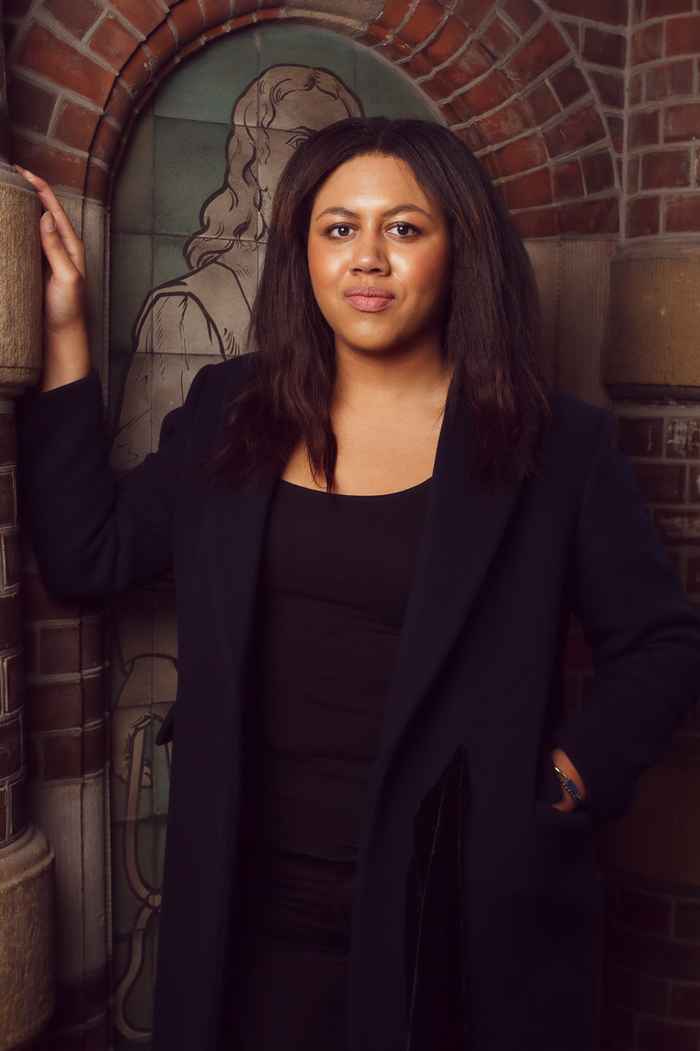Maryama W. Marong: 'Change is constant, so dare to experiment'

What was your dream job as a child, and what is your dream job now?
As a child I wanted to become an astronaut. I think that’s because I was fascinated with the unknown, pushing boundaries and approaching things from a very different perspective. In a way you could say that I’m doing that now, minus the space suit!
What made you want to start up Bend & Stretch?
Studying at the Amsterdam Business School made me want to go into marketing, so I worked for bigger corporate companies as well as a start-up. After a while I decided to move to a strategic agency to help others in business. While working with various clients and tackling diverse challenges, I found a key thread running through all those projects: collaboration. It can be much more efficient and fun, which ultimately can lead to more success, growth and innovation for good. That’s what I wanted to focus on full time and so I founded Bend & Stretch.
What do you like most about your job?
Working with various companies and different people. I like the diversity of working with different clients and apply my skill set, knowledge and experience to each different challenge. The mission of Bend & Stretch is to help people ‘get there’, and ‘there’ could be anything from a good idea to a solid agile strategy to achieve specific goals. I focus on people and teams, mapping out opportunities and providing insights into the bottlenecks that hinder success. Connecting with professionals and achieving milestones, be they large or small, is what makes me tick.
What are the most challenging aspects of your job?
Working for yourself means that you have the freedom to decide how you spend your time and with whom you spend your time. There are many interesting opportunities out there, but it’s key to pick what’s the right fit. To me it’s essential that you and your partner or client are on the same page when it comes to collaboration. I find that combining business acumen with intuition works well. It may sound corny, but following your gut is key!
You’ve worked for and with multiple companies and now started your own with Bend & Stretch. How have you experienced these different companies and job cultures?
Each company brings something different and there’s something for everyone: some people thrive in a corporate environment, whereas others do so in the hustle and bustle of a new company, and selling products is a very different process compared to selling a service. I think that’s really important to know for soon-to-be graduates. The best advice that I can give is to try it out.
To me, a company is made by its people, so culture is really important. I prefer working at a company that has a clear purpose and values. Growth for the sake of growth is just not enough. Also, there should be regular borrels or social activities to keep the energy flowing. On average, you can easily spend more time with your colleagues than with your friends and family, so it’s important to feel comfortable being your (professional) self around those people. And, who doesn’t like to close the week with a ‘vrijmibo’?!
I’ve enjoyed being part of well-organised and oiled machines at bigger companies as well as setting up from scratch at a start-up. Both experiences taught me a lot and gave me a priceless skill: agility.
How do you apply the knowledge and skills you gained during your studies in your job, and what career advice would you give students and fellow alumni?
There are 2 things every graduate will take away from getting a degree, no matter the subject or faculty. Each graduate will have analytical skills and insight, which form a foundation of knowledge that lets you look at things through a certain lens. I majored in marketing and combine the expertise I got from my degree with the insights I gained at various jobs, to create campaigns and strategies, or in new product development. I may not constantly apply all the theories and models from my studies, but they are certainly at the foundation of how I operate.
Another valuable part of my studies was my final thesis. Many students approach this as a huge mountain they have to overcome. And, believe me, it wasn’t a walk in the park for me either. But the process is worth it – even if you’re not going into research. It gave me research skills that I still use today, and – more importantly – it taught me planning and persistence. So, my advice is to enjoy the process, because you’ll come out stronger, and try out and see what fits you, from company size to industry. Change is constant, so dare to experiment.
We thank Maryama for taking part in this series and for answering our questions, and we wish her the best for Bend & Stretch.
Questions?
Maryama is happy to answer any questions you might have. You can contact her via email.
We hope this month’s alumna was an inspiration. What kind of Economics and Business career would you like to know more about? Let us know, and we will try to arrange an interview with alumni who have experience in that field for a future instalment of Alumni in the Spotlight!